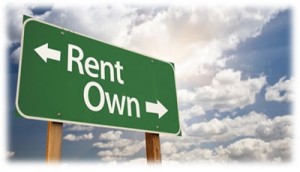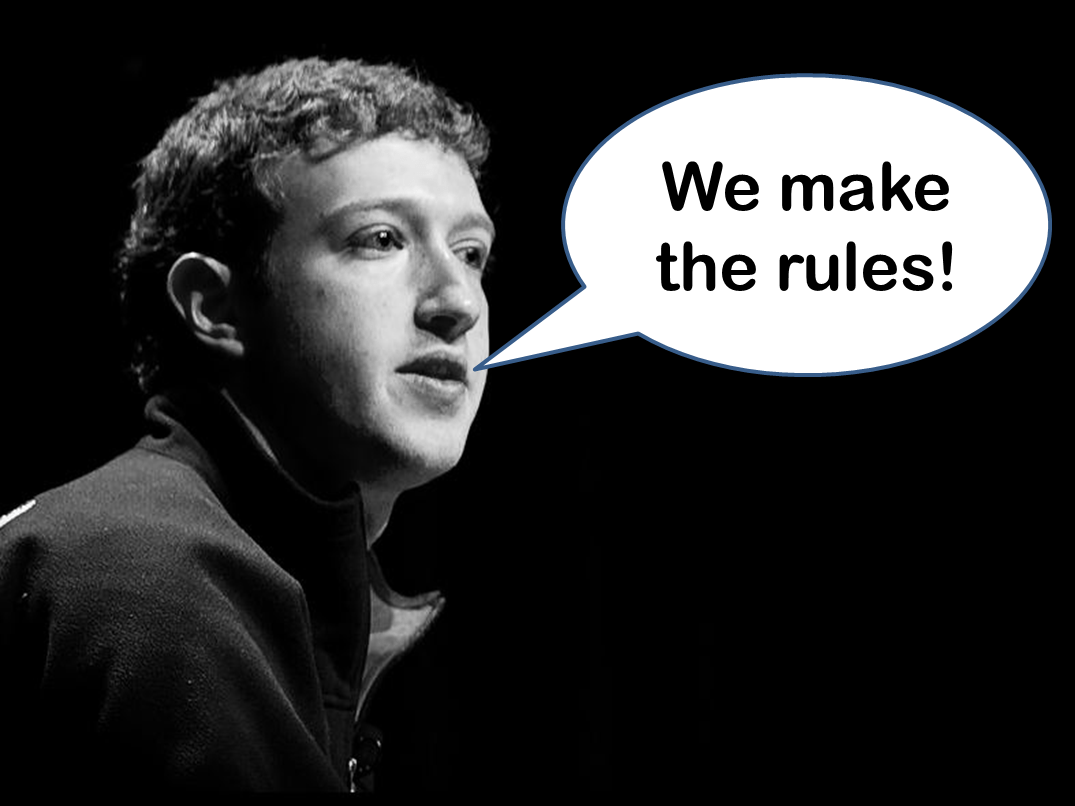 Since Lori Lewis joined our company in 2011, there has been an ongoing discussion about social media platforms and who makes the rules. In a post from Lori’s early days, she even referred to Mark Zuckerberg as “the landlord” – the guy with the power to change the game at any time. Today’s post may shock you because it’s becoming too true. One of Lori’s industry contacts came to her last week with a story that should spur conversation and rethinking at every radio station in the country. Here goes… – FJ
Since Lori Lewis joined our company in 2011, there has been an ongoing discussion about social media platforms and who makes the rules. In a post from Lori’s early days, she even referred to Mark Zuckerberg as “the landlord” – the guy with the power to change the game at any time. Today’s post may shock you because it’s becoming too true. One of Lori’s industry contacts came to her last week with a story that should spur conversation and rethinking at every radio station in the country. Here goes… – FJ
As we have discussed during the past few years here at Jacobs Media, social media should be viewed as a space radio rents (or in many cases, squat on) in order to serve its fans, and to strengthen the assets it owns – the on-air product, the website, mobile apps, podcasts, and the email database.
Yet all too often, we lose perspective with the social space. We forego any real purpose in favor of posting random memes and content that makes us laugh. We also end up spending more time on Facebook, Twitter, and Instagram than we do refining our own assets – the ones we control.
But now those digital chickens have come home to roost.
 What if you opened your laptop or tablet to find that Facebook suddenly blocked you from logging in? That means you suddenly lose all ability to run those contests or fulfill those status updates you sold? And it means that you cannot even post basic content nor can you respond to listener kudos and complaints.
What if you opened your laptop or tablet to find that Facebook suddenly blocked you from logging in? That means you suddenly lose all ability to run those contests or fulfill those status updates you sold? And it means that you cannot even post basic content nor can you respond to listener kudos and complaints.
Who would you even call for help?
It’s not like Facebook has operators standing by waiting to take your call.
It happened last month to a broadcaster associate of mine when Facebook locked out more than two dozen of the company’s admins. I have been given permission to share this story because it is important to everyone in radio that interfaces with Facebook, but I have agreed to keep the identity of the company and the admins anonymous. I am very appreciative they are allowing me to tell you what happened to them and how it could impact any station, cluster, or company.
It turns out that the people who found themselves locked out of Facebook were not the actual folks posting on their various radio stations’ brand pages that incurred the wrath of Mark Zuckerberg’s social network. Instead, they are the people who oversee the company’s social culture. But what they were about to find out is that admins of any page flagged for content can be considered “perpetrators” by Facebook. And once that happens, your ability to function on Facebook can come to a hasty end.
Once it became clear that so many admins had been simultaneously blocked out of Facebook, the futile hunt for help began. And this was no easy feat.
If you don’t know anyone at Facebook – good luck. Eventually, they caught a break after being locked out for over 24 hours and bumped into a Facebook employee. And the speculation is that the only reason they were contacted is that this radio company spends marketing dollars with Facebook.
When they finally spoke with a Facebook rep, they learned things that most people simply do not know. They were told that two of their station brand pages had racked up a total of five warnings or “checkpoints” – the maximum amount for violating Facebook’s Community Standards.
And what no one knew is that while these brands were receiving warnings, Facebook was internally slapping “checkpoints” on all their admins. And according to the Facebook spokesperson, you are only allowed five of these “checkpoints.”
So five “checkpoints” and you’re out.
And now you’re wondering about what triggers a “checkpoint?” This is where the FCC analogy comes into play because it’s not exactly clear. One of the “checkpoints” may have been generated by an image that was posted of a body builder, while another appeared to be a photo of a museum sculpture. Indecent or insensitive? Facebook thought so.
The post that brought on the fifth and final “checkpoint” parodied the ALS ice bucket challenge using an image of the Titanic. The person who posted it thought it was funny. Evidently, Facebook did not appreciate the humor.
And while there is much confusion (even from Facebook) as to why they “checkpointed” all these admins and not just the person who did the posting, what’s even more troubling is the ambiguity surrounding what constitutes insensitive content? Facebook has not offered an explanation. As we know from FCC rulings, it’s a “gray area.”
There’s no real sense from Facebook about what’s inappropriate. At least with the FCC, they offer an idea of what’s obscene and indecent.
The problem is there’s no certainty about how these posts were flagged in the first place. Did Facebook users report them by selecting the “I don’t like this post” option? Or does Facebook have bots scanning content?
We may never know. Zuckerberg is the landlord and he can make up the rules as he goes.
Ultimately, Facebook reinstated these company-wide admins accounts but here’s the other problem. So for now, they’re fine. But what happens when one of the pages they oversee draws another warning?
Being a large company with countless Facebook pages, chances are good that another “checkpoint” can and will happen again. And, if that happens, is it “checkmate,” game over, as in bye- bye Facebook for those admins?
This experience reinforces my well-known viewpoint that social media is not an unrestricted playground. There are rules – perhaps ill-defined – but rules nonetheless and a certain behavior that is required by brands.
What may seem funny to you as an admin may be offensive when it is expressed as your radio station’s voice.
When speaking on behalf of a brand, it is essential that you feel content through the eyes of everyone. Focus on complementing the values of the station, not your individual beliefs or your sense of humor.
We are not truly in control of any of these social platforms, and that includes Twitter, Instagram, and others that have become more popular. Don’t construe my comments to infer that Zuckerberg or his Facebook police are evil. They have their standards, and want their site to conform. Apple isn’t dissimilar on the apps front. The dilemma is in not knowing where the lines are.
Social is an incredible customer service tool. It’s also the biggest website referral device. Don’t let these actions by Facebook (and others) deter you from engaging with your audience in these social spaces.
But put it in perspective – it’s less about Titanic jokes and more about proving our brand’s value in the social lives of our fans. The frivolous stuff can be fun, but if that’s primarily what you’re doing in social media, you’re missing the opportunity to truly give your audience a voice while reflecting your station’s personality and essence.
Perhaps if we strive to serve and study what positively resonates with fans, we can steer clear of future “checkpoints” and the painful consequences that can occur.
Or maybe not.
Lori is available to discuss these and other issues relating to social media and how radio brands can best utilize them. She is also available to speak to broadcaster groups and organizations. Contact her at [email protected].





This story makes me wary of using Facebook for marketing – much more than I used to be. Years ago, Google kicked my then 10 year old son off of YouTube for allegedly violating some part of their TOS that they never explained and deleted all of his content – product reviews, mostly of lasers. He is permanently banned from having an account for reasons that will remain unknown as long as his banishment – forever.
The more valuable social media becomes to a business, the scarier this is. It’s like putting a key piece of your marketing in the hands of a court of Islamic clerics. They don’t tell you what you’ve done wrong, how many times or who is impacted – its hard to obey the rules when you don’t know what they are.
If it were me, I’d rather pay Facebook and get some boundary clarity for my money – but I don’t even know if that option is available. Wouldn’t it be better for everyone if guidlines were part of the TOS and warnings were given so people knew to be more careful – kinda like speed limit signs reduce speeds?
This sounds like a bunch of socially awkward nerds getting back at the world that ostracized them in high school. Why else would they make the rules hard to know and follow? Its their sandbox and they can do what they want, but it makes me think that marketers should think seriously about why they shunned those kids back then – maybe those reasons still apply now.
With all apologies to Lesley Gore, it’s their platform and they can do what they want to. How anyone in radio (or any other business) thinks this is a free playground where they can simply cash in is delusional. As Lori has pointed out for a few years, there is a big difference between the assets you own and those you rent, and Facebook (and Twitter, Pinterest, LinkedIn, etc.) belong in the “rental” category. It’s not as if radio doesn’t have enough avails, between its air, its websites, its apps, its podcasts, and its event marketing. Thanks for the comment.
I guess my point is that this playground might be better if it WASN’T free and came with some defined ground rules.
One way or the other, Bob. If it’s free, there are always “costs.”
Enlightening and informative. Perhaps gathering and distributing point of contact info and/or a flow chart on how to conduct an interface with “the Face” behind Facebook…(Facebook’s Social Culture Club) would be helpful. An outline if you will on how to get there fron here should you find your brand in a similar dilemma.
Accountability is a two way street. Facebook would do well to remember that and be forthcoming with information that enhances the experience for all users large or small.
It IS a 2-way street, Tim, and Facebook could be more forthcoming with its guidelines. But a similar situation exists with Apple and its App Store. Developers are often left having to figure it out. Thanks for the comment.